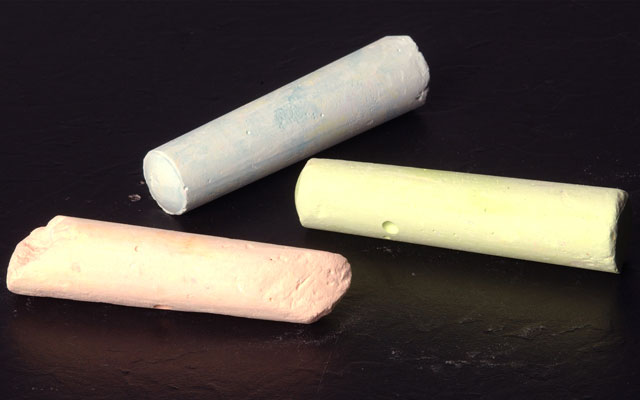Hard Time for Chalk Crime
Evan Bernick /
It may or may not be true that, as some seem to believe, not a single cop in the history of the Las Vegas Metropolitan Police Department (MPD) has been criminally “charged after shooting someone, even if that person was unarmed and/or innocent.” What is true, is that making this statement in writing may land you in prison and brand you as a criminal.
Even if that statement is written in washable chalk.
That’s what four protestors affiliated with Nevada Cop Block and Occupy Las Vegas found out when they scrawled that accusation, along with some profanity, on the sidewalk outside MPD headquarters. Days after being cited, they tagged the pavement in front of the Regional Justice Center. They now face multiple gross misdemeanor counts of placing graffiti or defacing property and conspiracy to commit placing graffiti.
To be sure, the protestors deliberately vandalized public property. Perhaps they should have been fined for doing so—it purportedly cost the city’s graffiti abatement team over $1,500 to clean up the “crime scenes” with power washers (one wonders whether a hose or a mop and bucket wouldn’t have been more cost effective). That’s not to say, however, that they should be facing jail time.
First, the protestors did not use oil-based chalk—they used washable chalk that kids use on sidewalks every day. If it is true, as officials have said, that this chalk will do long-term damage to the sidewalk, consistency would seem to demand that a six-year-old who sketches on a sidewalk should be equally subject to sanction.
Steve Wolfson, Las Vegas’s district attorney, has tried to justify the charges by explaining, “This is not a kid drawing with a piece of chalk on the sidewalk. These are adults who used chalk to draw profanity. And there is a law on the books that make it a crime to engage in this activity.”
Wolfson’s statements are misleading at best. Nevada law defines “graffiti” as “any unauthorized inscription, word, figure or design that is marked, etched, scratched, drawn, painted on or affixed to the public or private property, real or personal, of another, which defaces the property.” Nothing in the laws the violation of which the protestors were charged speaks to profanity, and one of their statements was not in fact profane, merely critical of the police.
Further, there’s no basis for distinguishing profane chalk writing from any other kind. The U.S. Supreme Court, in 1971’s Cohen v. California, held that the First Amendment allows someone to wear a jacket with the message “F–k the Draft,” even in a public building. One might call such speech tasteless or indicative of a limited vocabulary, but the Constitution doesn’t make exceptions for unpleasant or offensive speech.
Put simply, this criminalization of chalk commentary is viewpoint-based discrimination against speech that the city does not like, masquerading as a vandalism charge. The same has happened in other cities—the city of San Diego prosecuted a man for writing anti-bank statements, also using washable chalk, on the pavement outside Bank of America. It’s difficult to imagine that San Diego would have prosecuted an adult who scrawled, “I Respect and Admire Bank of America.” It’s almost inconceivable that Las Vegas would prosecute sidewalk scribblers who opined that the police were doing an excellent job. When the government picks and chooses in this way, it erodes and abrades the notion of equality before the law.
The Heritage Foundation’s project USA vs. YOU spotlights the flood of criminal laws threatening Americans’ liberties. Explore more stories of overcriminalization and find out what you can do to reverse this trend.

